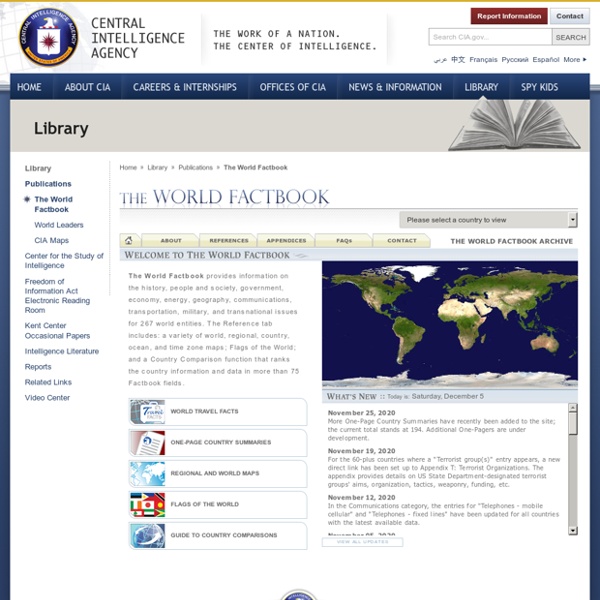



Enduring Voices Project, Endangered Languages, Map, Facts, Photos, Videos Explore Talking Dictionaries The Enduring Voices team is pleased to present these Talking Dictionaries, giving listeners around the world a chance to hear some of the most little-known sounds of human speech. Several communities are now offering the online record of their language to be shared by any interested person around the world. While you probably won't walk away from these Talking Dictionaries knowing how to speak a new language, you will encounter fascinating and beautiful sounds--forms of human speech you've never heard before--and through them, get a further glimpse into the rich diversity of culture and experience that humans have created in every part of the globe. Explore the Talking Dictionaries for yourself. Losing Our World's Languages By 2100, more than half of the more than 7,000 languages spoken on Earth—many of them not yet recorded—may disappear, taking with them a wealth of knowledge about history, culture, the natural environment, and the human brain.
EN IMAGES. Une carte du monde montre les pays à leur "vraie" taille contrairement aux planisphères classiques GÉOGRAPHIE - Méfiez-vous des apparences trompeuses... Lorsque l'on regarde un planisphère établi sur la base de la projection de Mercator, certains pays – tels que le Brésil ou encore la Russie – peuvent paraître immenses. Créée par James Talmage et Damon Maneice, cette carte apparaît comme un grand bouleversement de notre représentation du monde: depuis notre plus tendre enfance, nous avons en effet été accoutumés à utiliser des mappemondes obéissant à la Projection Mercator. Si cette dernière possède pour avantage de représenter le monde entier au sein d'une carte rectangulaire, elle ne permet cependant pas de conserver les proportions réelles des pays: plus ils se trouvent près des pôles et plus ils sont représentés grands. Contrairement à ce qu'on pourrait penser en regardant une carte traditionnelle donc, la Russie par exemple, n'est pas plus grande que le continent africain.
Reference, Facts, News - Free and Family-friendly Resources - Refdesk untitled Fighting Against Apartheid: The Activism of Fatima Meer | Choices Program UN photo This lesson is an online supplement to the curriculum unit Freedom in Our Lifetime: South Africa's Struggle. Objectives Students will: Consider what it was like to live in South Africa under apartheid.Hear firsthand from a South African anti-apartheid activist.Examine the ways in which one activist worked to achieve justice and equality in South Africa. Resources Handout—The Activism of Fatima Meer In the Classroom Note: Students will get the most out of this lesson if they have read Parts 1 and 2 and the Epilogue of Freedom in Our Lifetime: South Africa's Struggle, although the lesson can be adapted for students who do not have this background knowledge. 1. Write the word "apartheid" on the board. Review with students the way South African society was structured at the time. 2. Tell students that in today’s lesson they will be watching videos of Professor Fatima Meer, one of South Africa's most distinguished anti-apartheid activists. How have things changed since the early 1990s? 3.
How To Learn On Your Own: Make A Personal Scholar Resource Plan One of the most challenging and gratifying parts of learning alone is the opportunity to search for and select your own learning material. Students in traditional classrooms usually don’t get to decide how they are going to master course content. Instructors decide for them in the form of textbook selection, quizzes, tests, group projects, etc. As an independent learner, you can make your study time more effective by using only the learning methods that work for you. A resource plan is a document used to brainstorm the learning material you can use when you begin your studies. This article will show you how to create a resource plan to use in your independent studies. Step 1: Set a Goal The first step to creating a resource plan is to decide on a single goal. Ineffective Goal – Learn HTMLEffective Goal – Create several websites using HTML, referring only minimally to a coding book. Step 2: Collect Materials Books – The written word is still one of the best ways to learn a subject.
Virtual Reference Shelf - Ask a Librarian Abbreviations Back to Top Almanacs & Fast Facts Architecture Art For more information, see: Arts, Fine and Decorative: General Resources (Library of Congress Humanities & Social Sciences Division) Business For more information, see: Internet Resources: Subject Guides Links to freely available Internet resources on business and economics topics arranged by subject. Calculators Calculators On-Line Center Calendars & Time Earth Calendar A daybook of holidays and celebrations around the world. Children & Parents Ben's Guide to U.S. Consumer Information For more information, see: BEOnline: Consumer Information (Library of Congress Business Reference Services) Dictionaries & Thesauri Directories Education College Guides Resources for TeachersEDSITEment A site for teachers, students, and parents searching for high-quality material on the Internet in the subject areas of literature and language arts, foreign languages, art and culture, and history and social studies. Encyclopedias Genealogy Grant Resources
Cost of Living. Worldwide ! - Eardex